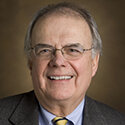
Efforts to pursue professionalism in practice were outlined by three speakers at ABMS Conference 2020 – Virtual held this past September.

Addressing behaviors that undermine a culture of safety and respect helps support physicians in their pursuit of professionalism, noted William O. Cooper, MD, MPH, Vice President for Vanderbilt University’s Center for Patient and Professional Advocacy (CPPA). Pursuing the right balance involves creating intentionally designed systems with professional accountability. Professionalism is about demonstrating technical and cognitive competence, but is also about being respectful and available, effectively communicating, modeling teamwork, and having self-awareness. “It is about helping colleagues be the best version of themselves,” he added.
Established in 2002, CPPA focuses on identifying, measuring, and addressing unprofessional behaviors. Today, 200-plus health systems take advantage of CPPA’s programs to support the pursuit of professional accountability. Participating sites submit patient and staff stories to CPPA’s Patient Advocacy Reporting System® (PARS®) and Co-worker Observation Reporting SystemSM (CORSSM), respectively. Complaints are coded to identify clinicians at risk for malpractice claims and avoidable medical outcomes. Currently, CPPA is tracking the performance of 86,000-plus physicians in PARS.
The research shows that a disproportionate share of physician-related unsolicited concerns from patients/families are associated with a small proportion of physician groups at both academic and regional medical centers, Dr. Cooper said. Between one-third and one-half of physicians have never received an unsolicited patient complaint or received very few. In contrast, five percent of physicians accounted for 35 percent of these complaints. “If you were in the latter group, wouldn’t you want to know?” he asked. “Wouldn’t you want a member of your group to know?”
Regarding CORS, between 85 percent and 90 percent of physicians do not receive a co-worker complaint. In contrast, three percent of professionals account for 44 percent of these complaints. Dr. Cooper noted that there is an approximate five percent overlap of physicians who generate complaints from both patients and co-workers.
Among the lessons learned from compiling these data is that malpractice claims are non-randomly distributed. “Physicians who are high risk today are high risk tomorrow,” he said. Also, unprofessional behavior impacts vigilance, communication, and teamwork. Finally, physicians who model disrespectful behavior toward their patients experience more adverse outcomes.
Vanderbilt promotes what it calls the Professionalism Pyramid – a model that successfully addresses physicians with single events or patterns. The pyramid defines a tiered intervention approach beginning with an informal cup of coffee for a single concern escalating to a peer-delivered awareness intervention (supported by local and national peer comparisons data) for physicians who appear to model a pattern to a guided intervention by authority, which includes a written corrective action plan for physicians demonstrating a persistent pattern. The small number of clinicians who do not respond to these interventions are subject to disciplinary action as defined by the organization’s policies.
Most physicians – 97% – respond professionally to the feedback received over a cup of coffee, Dr. Cooper said. Eighty-five percent of the physicians who exhibit a pattern will self-regulate after receiving feedback with comparison data. Less than one percent need a guided intervention and 0.09 percent require disciplinary action. Some of the latter have cognitive issues, he added.
Peer messengers, who are trained and supported by CPPA faculty, deliver these interventions that are designed to promote self-reflection and change for the physicians. Overall, these one-on-one conversations can have a profound impact on our colleagues and the patients they serve, he concluded.

Cynthia L. Emory, MD, MBA, Professor and Vice Chair of the Department of Orthopaedic Surgery and Rehabilitation at Wake Forest School of Medicine, relayed her experience as a PARS messenger. At Wake Forest, where she is now Chair of the PARS program, Dr. Emory first sends a letter to the physician who has had an event. The gist of the letter is that the complaint data is being shared “in the spirt of confidential, collegial awareness” because the health care organization is committed to providing the best possible care. It also notes that this review process has the full support of leadership. She asks to schedule a time to meet and reviews the data in preparation for the meeting.
The training Dr. Emory received from CPPA faculty was instrumental in teaching her how to deliver somewhat negative information in a positive way. Nobody likes to hear complaints about themselves and most of the time it won’t be the first time the physicians are hearing these types of concerns, she said. “Usually a cup of coffee is sufficient to get physicians on the right path,” Dr. Emory added. Overall, the physicians respond professionally. Those who don’t tend to be dismissive or use deflection and distraction. She recalls one physician who threw the folder across the room and proceeded to give explanations and assign blame for every complaint listed. But the physician’s scores did improve the following year, she noted.
Since the COVID-19 pandemic, many of these in-person discussions are now conducted as Zoom calls. In some ways, the latter is more difficult because it is hard to read a person’s body language on a computer screen, Dr. Emory said. Also, the physicians can cut the conversation short, citing technical difficulties. On the other hand, having this type of discussion virtually does offer a buffer that a face-to-face discussion does not.

Don Moore, PhD, Professor of Medical Education and Administration at Vanderbilt University School of Medicine, reviewed a new quality improvement (QI) initiative focused on professionalism that will enable participating health care providers to earn Maintenance of Certification (MOC) credit for Improvement in Medical Practice.
The goal for the initial MOC QI professionalism project is for 80 percent of individuals who receive messenger interventions, like those described by Drs. Cooper and Emory through PARS and CORS, to reduce the number of patient complaints and coworker observations of unprofessional behavior, explained Dr. Moore, who also serves as the Director of Education for the Division of Continuing Medical Education, Director of the Vanderbilt MOC Portfolio Program, and Co-Director of Evaluation for the American Medical Association-supported GOL2D Reimagining Residency Project. The MOC project involves collecting baseline data on the number of professional complaints about physicians who practice with the Vanderbilt Health System and implementing an intervention that starts with an awareness meeting conducted by peer messengers. The CPPA and the Vanderbilt MOC Portfolio Program will initiate a PDSA (plan-do-study-act) cycle in October that will last for 12 months. Based on the results of that cycle, the intervention will be refined and another PDSA cycle will continue for 12 months.
Physicians who served as messengers and participated in the project will be able to claim MOC credit after completion of the first PDSA cycle. Additional physicians will be able to participate in the second cycle to earn MOC credit and in future cycles as well as the MOC QI professionalism project is expected to be ongoing at Vanderbilt.
This project was inspired by the work of the Continuing Board Certification: Vision for the Future Commission, Dr. Moore noted. After serving on the Vision Commission, Geoffrey Fleming, MD, Vice-President for Continuing Professional Development at Vanderbilt University Medical Center, was inspired to support and work with Dr. Cooper to build the Vanderbilt MOC Portfolio Program’s QI professionalism project.
© 2020, American Board of Medical Specialties® (ABMS®).
